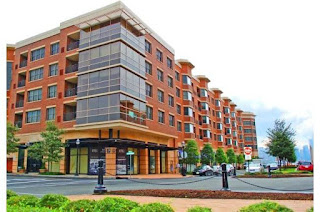 On September 14, 2017 the New Jersey Supreme Court issued a long anticipated decision in the matter of The Palisades at Fort Lee Condominium Association, Inc., v. 100 Old Palisade, LLC (“Palisades”). The decision may have an immediate impact on recently constructed condominiums, or those to be constructed in the future, that have construction deficiencies. While innately fact-driven and evidence specific,[1] Palisadesheld that the six-year statute of limitations on a condominium association’s direct claims against a developer’s contractors and design professionals for construction defects begins to run upon the latter of six-years from: (a) substantial completion of the contractor’s work, or (b) when the “owner” knows, or should have known through the exercise of reasonable diligence, of the existence of a claim.
On September 14, 2017 the New Jersey Supreme Court issued a long anticipated decision in the matter of The Palisades at Fort Lee Condominium Association, Inc., v. 100 Old Palisade, LLC (“Palisades”). The decision may have an immediate impact on recently constructed condominiums, or those to be constructed in the future, that have construction deficiencies. While innately fact-driven and evidence specific,[1] Palisadesheld that the six-year statute of limitations on a condominium association’s direct claims against a developer’s contractors and design professionals for construction defects begins to run upon the latter of six-years from: (a) substantial completion of the contractor’s work, or (b) when the “owner” knows, or should have known through the exercise of reasonable diligence, of the existence of a claim.
Remarkably, the Palisades use of the term “owner” was not exclusive to the condominium association, but included the original owner of the property – i.e. the developer. In other words, the Court posited that causes of action accrue when someone in the chain of ownership, including the developer, first knows or reasonably should know of a defect and the party responsible therefore, even if transition to unit owner control had not yet occurred. Thus, although Palisades was decided on its peculiar facts, the decision opens the possibility that direct claims by a condominium association against a developer’s contractors and design professionals could expire long before transition of control to the unit owners.
It is not realistic to suggest that a developer would initiate an action against itself, or its contractors and design professionals, prior to transitioning control to the unit owners. Yet, in certain circumstances, this is precisely what Palisades requires to preserve the association’s claims against the developer’s contractors and design professionals. Many reading this may say, “So what, the developer is responsible and will still have to pay for the construction defects.” While it is true that the condominium association would likely still have various viable claims against its developer in such circumstances, the developer is likely a single purpose entity with little to no asserts. It is also likely that the developer failed to reserve significant funds to address warranty and other related construction defect claims.
In light of Palisades, if your association is currently experiencing problems due to potential construction or design defects it is suggested that you seek the advice of counsel immediately. Though the developer may ultimately still be responsible, to the extent that you may also have direct claims against the developer’s contractors and design professionals, you may need to initiate litigation sooner rather than later.
[1] The full opinion can be downloaded at: http://njlaw.rutgers.edu/collections/courts/supreme/a-101-15.opn.html. Generally, in New Jersey, a condominium association has six years from the date the developer transfers control to the owners to bring a claim against the developer for deficiencies in the design and construction of the common elements. WhilePalisades does not appear to change this well-settled law, the Supreme Court has called into question years of trial and appellate decisions that held that the same tolling applied to claims by a condominium association against a developer’s contractors and design professionals.